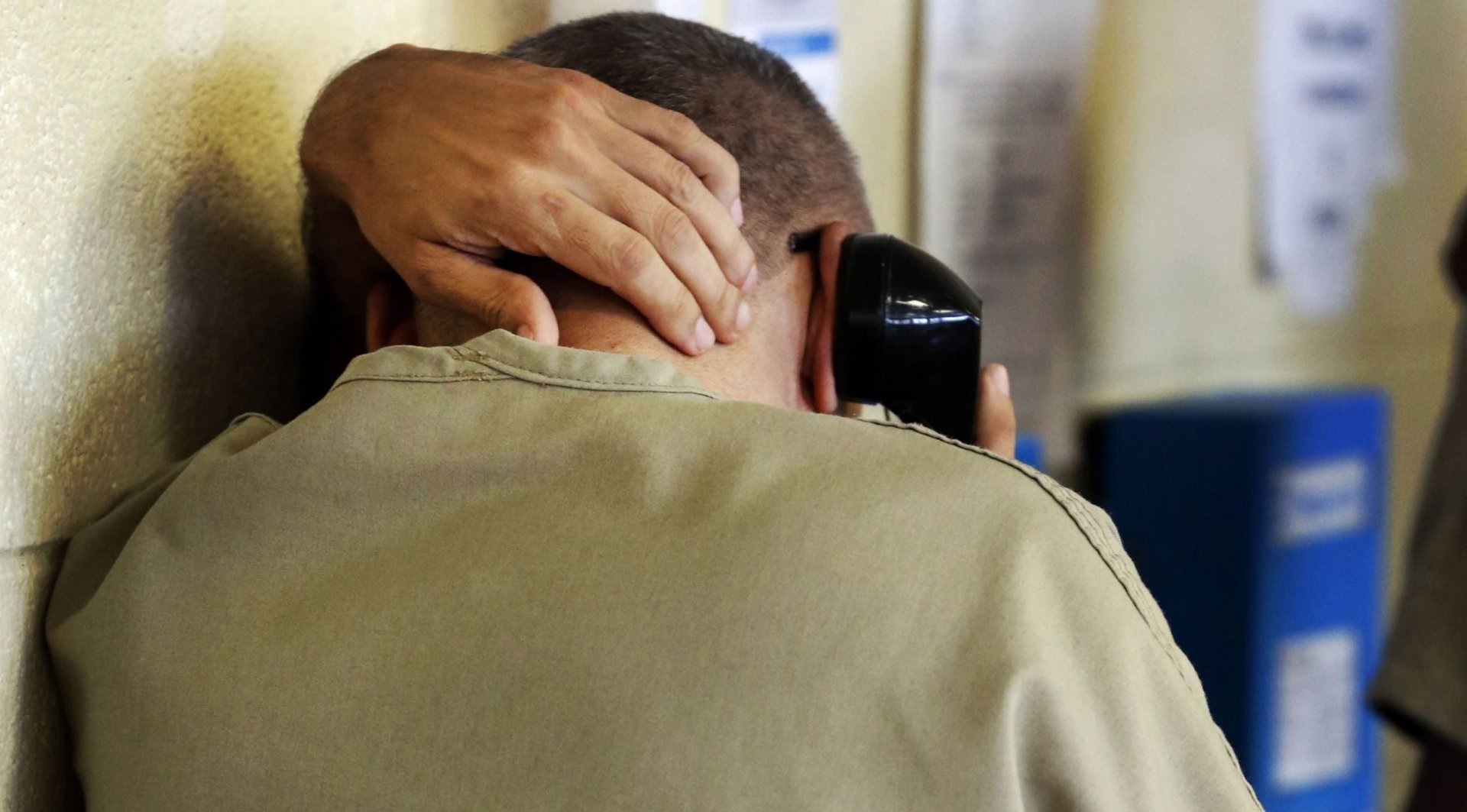The exploitative prison-phone industry could be soon dominated by just two companies
The New York city council has passed a bill that would let jailed detainees place domestic phone calls for free. It’s a small, but significant victory for inmates and their families, who are hit hard with the exorbitant costs tied to a loved one’s incarceration.


The New York city council has passed a bill that would let jailed detainees place domestic phone calls for free. It’s a small, but significant victory for inmates and their families, who are hit hard with the exorbitant costs tied to a loved one’s incarceration.
Securus Technologies, which runs the phone service at Rikers Island, the city’s main jail complex, is a giant in the prison phone industry. Securus wants to buy a smaller competitor, ICSolutions, which would leave prison-industry telecommunications dominated by only two providers. Prisoner-rights advocates and families of inmates say this would give facilities less choice, while granting the companies more leverage in contracts. Opponents are petitioning the Federal Communications Commission to block the sale.
In the US, jail and prison phone services are outsourced to private providers, and fees have historically been exorbitant, reaching as much as $25 for a 15-minute call. The profits—part of which go to authorities in so-called “kickback” schemes—have made for an industry valued $1.2 billion in 2015.
Securus and its main competitor, Global Tel Link (GTL), are known for high prices. Securus made a splash several months ago, when the New York Times reported that law enforcement can track the phones of people who are not in prison with one of the company’s technologies. The Prison Policy Initiative (PPI), one of the petitioners against the Securus-ICSolutions deal, calculated that the market share of the combined companies and GTL would be between 73% and 84%. An analyst note from Moody’s characterized the market as “largely duopolistic.”
Securus, which declined to comment as the transaction awaits approval, has filed an objection to the opponents’ petition to the FCC, saying that their assessment of the market share was “unreliable and misleading.” “They didn’t like our market analysis, but didn’t bother to provide one of their own,” replied Aleks Kajstura, legal director of the Prison Policy Initiative.
Both Securus and GTL, which also bought a smaller company last year, are owned by private-equity companies—in the case of Securus, it’s Platinum Equity, which is run by Tom Gores, the owner of the NBA’s Detroit Pistons.
What happens now depends on the FCC. Several years ago, the commission ruled to cap the price of prison phone calls, but that decision was undercut by a Washington DC court—and later by the commission itself, which, under a new chairman, said it would stop defending some of its own regulations. Right now, there’s a cap on out-of-state calls, for which companies can’t charge more than 25 cents per minute. The court issued a stay on the same sort of limitations for in-state calls, and the rates often remain prohibitively high, according to the PPI.
What’s more, to skirt the new FCC caps banning flat fees for connecting a call, the companies started charging a higher rate for the first minute. They also charge fees for depositing money into inmates’ accounts. “They are looking for loopholes and exploiting them wherever they find them. The regulation has been a step in the right direction, but there is a lot more to do,” Kajstura said.
Securus has its sights set beyond the prison-phone industry. It provides tablets, video visitation, email, inmate account infrastructure, and is expanding into medical services. Such lateral expansion, Kajstura said, allows companies able to present themselves as a “one-stop shop” to governments: “Once they get their tentacles into all the service provisions with the facility, it’s harder for a facility to switch to a different provider.”